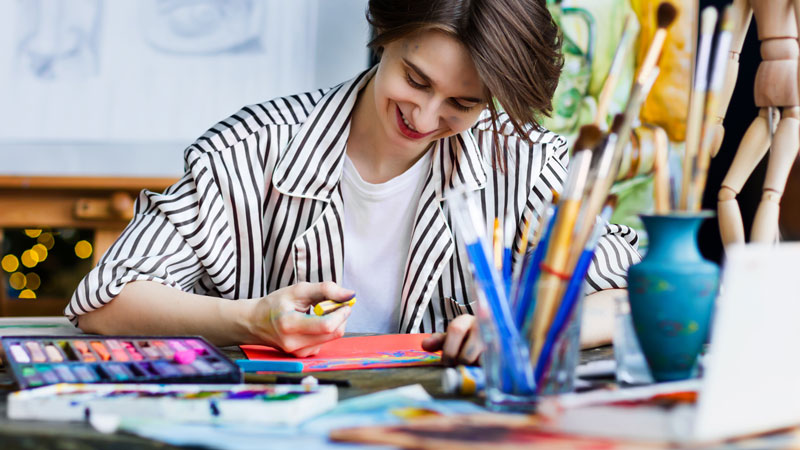
It can also set in during the process itself while strokes are fresh. You second guess every decision, every mark, every color. The art-making process quickly becomes a mental struggle with yourself. The enjoyment of creating starts to fade along with your motivation.
You are losing the battle.
You decide that it’s just not worth it and you put your paints away.
It affects all of us. Well, most of us anyway. A lack of confidence can kill our creativity and stifle our art-making.
Confidence is important in all aspects of life, but especially in art. The creation process comes from within, and if your self confidence is weak then you are destined to fail from the start.
I often admire the artists that exude their confidence in their mark, boldly laying down strong colors with the simplest stroke. The resulting mark just seems to be perfect, working in harmony with the composition. This level of confidence doesn’t just happen.
So, how do we develop self-confidence? And more importantly, how to do we apply it to our art?
In this post, I’ll offer my suggestions for overcoming, or at least battling the mire of under-confidence. It’s something that I struggle with personally, so I don’t profess to have all of the answers on this subject. But perhaps I can offer a few suggestions that may help.
Here’s an infographic that outlines the highlights of growing your artistic confidence…
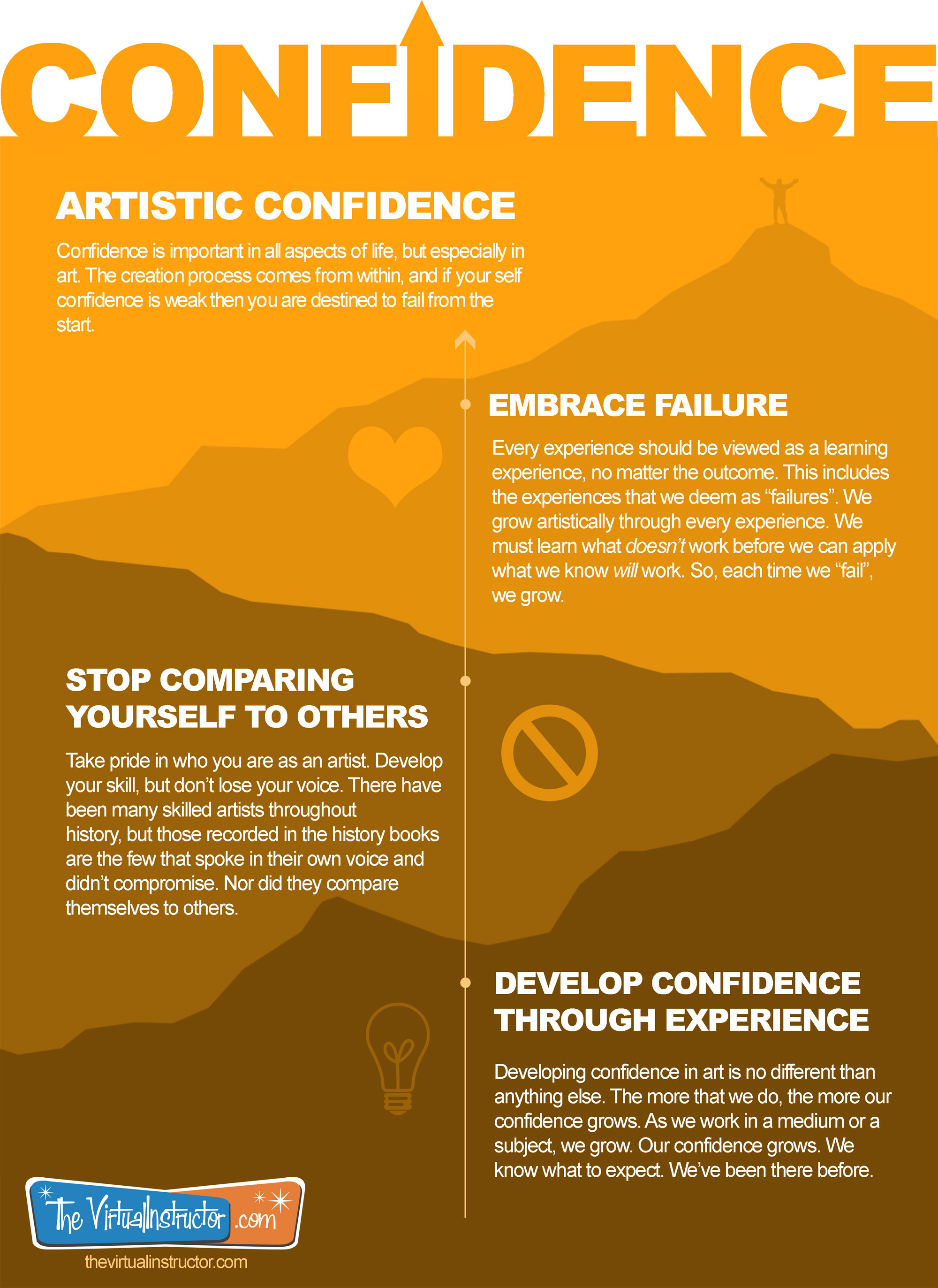
Embrace “Failure”
The word failure is in quotations because I don’t really believe in failures when it comes to art. Many times we start a work with a specific vision and in the end, the result doesn’t match the original vision.
We too often categorize these works as failures. Sometimes we don’t even complete them because we feel that we cannot meet our own expectations, so why even bother.
Over time, after we have experienced multiple “failures”, our confidence erodes. We begin to second guess our decisions and the enjoyment of art-making slowly dissipates. Our marks become timid and we are afraid to take chances. For some, the thought of drawing or painting even produces a feeling of anxiety.
With a simple shift in our thinking, however, we can view these experiences differently. And when we do, these “failures” can actually grow our confidence.
Let me explain what I mean…
No Experience is a “Failure”
Every experience should be viewed as a learning experience, no matter the outcome. This includes the experiences that we deem as “failures”. We grow artistically through every experience. We must learn what doesn’t work before we can apply what we know will work. So, each time we “fail”, we grow.
And this takes time. Sometimes lots of it.
Michelangelo once stated, “If people knew how hard I had to work to get my mastery, it wouldn’t seem so wonderful at all.”
Mastery takes time – it requires failure. When we look at a master artist, we only see the end result and the confidence that he has developed. We don’t see all of the “failures” that forged his confidence.
This is why “failures” should be embraced by the artist. The path to artistic success is often illuminated by the lessons learned through our “failures”.
“Failures, repeated failures are finger posts on the road to achievement. One fails forward toward success.”
– C. S. Lewis
Stop Comparing Yourself to Others
While it’s perfectly acceptable to be influenced by other artists, it’s important not to lose sight of the fact that you are not them. If you start to compare yourself to others, you quickly forfeit your unique artistic identity.
As individuals we should embrace our differences. As artists, we should do the same.
If we don’t, we are in danger of losing confidence in ourselves and what we produce.
Instead, take pride in who you are as an artist. Develop your skill, but don’t lose your voice. There have been many skilled artists throughout history, but those recorded in the history books are the few that spoke in their own voice and didn’t compromise. Nor did they compare themselves to others.
Develop Your Confidence
I still remember the first time that I jumped from a high diving board into a pool. I was no more than 6 or 7 years old. I was terrified.
I remember inching myself to the edge, looking down to make sure that my mother was watching.
I held the right railing with two hands, my knees slightly bent. Each foot was carefully placed on the concrete as I worked my way to the edge.
After several moments of watching the light dance off of the water below, I closed my eyes, allowed my knees to buckle and my body fall.
I emerged from the water with a huge grin. I quietly swam to the edge of the pool, but this time with a renewed confidence.
My second jump was different from the first. I didn’t close my eyes, and I didn’t look down. I knew what to expect. I had confidence in how I would perform. I had been there before.
Our art is no different. The more that we do, the more our confidence grows.
As we work in a medium or a subject, we grow. Our confidence grows. We know what to expect. We’ve been there before.
It may take time and it will require “failures”. In the end, artistic confidence is about perseverance.
Do you struggle with confidence? How do you overcome a lack of it?
If so, join over 36,000 others that receive our newsletter with new drawing and painting lessons. Plus, check out three of our course videos and ebooks for free.
Lesson Discussion
Comments are closed.

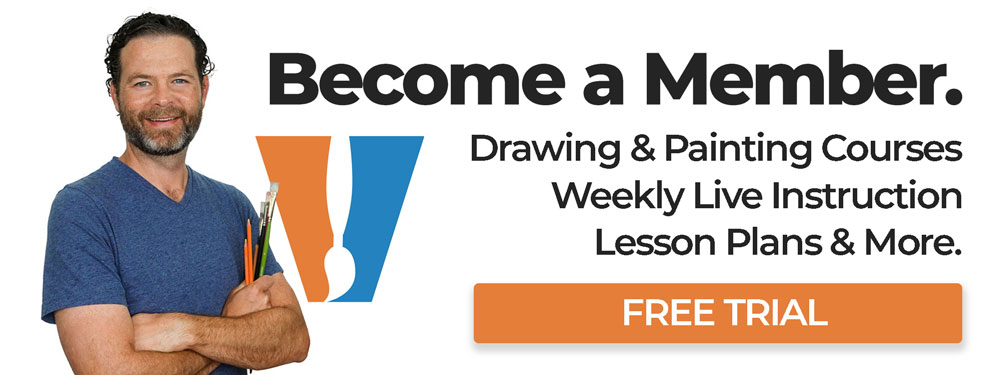
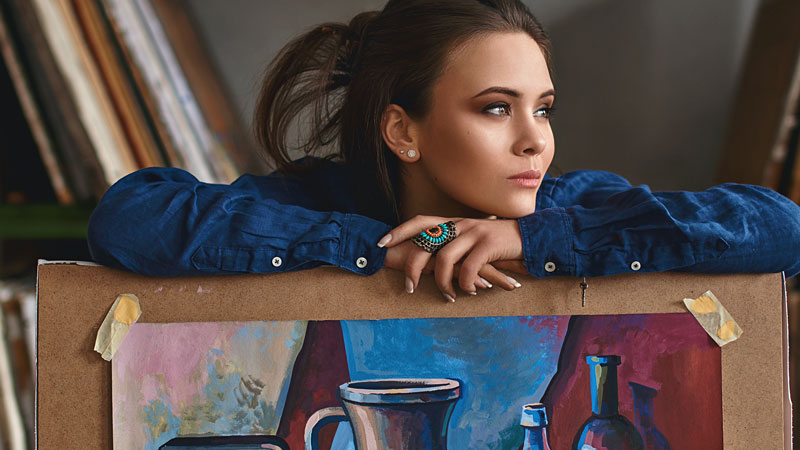
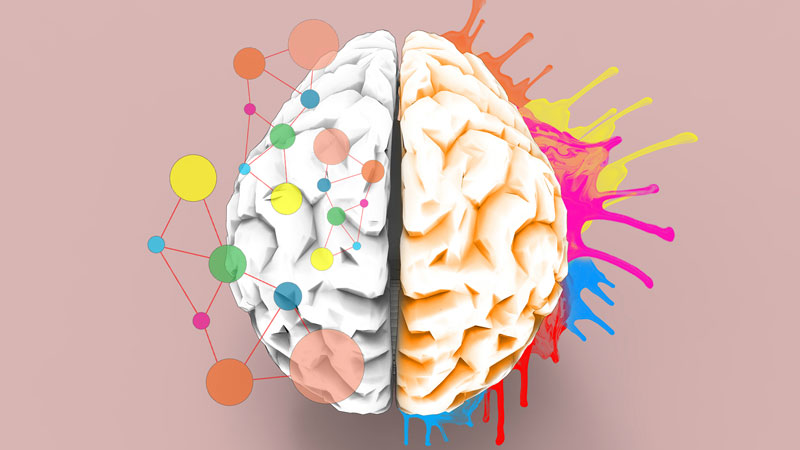
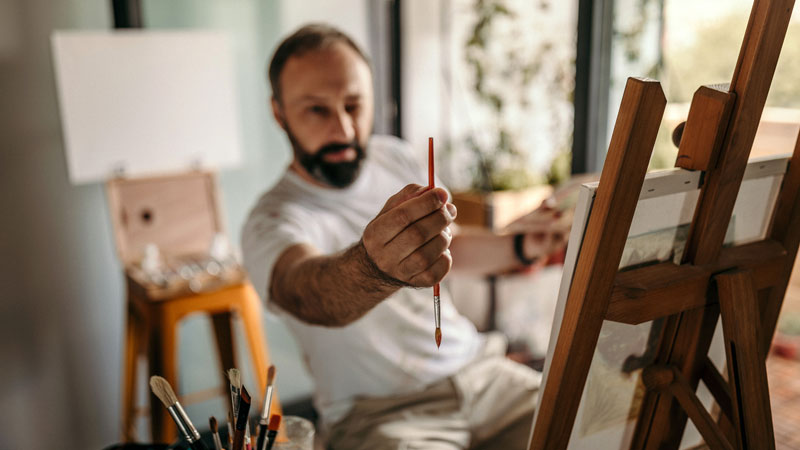
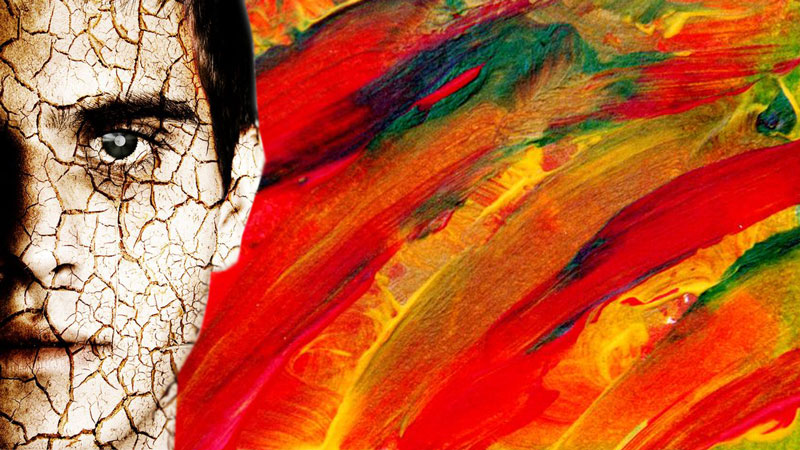
Actually for a starter I never had a lack of confidence. But I am not sure if you can have overconfidence in artistic creation, though I don’t know if I have overconfidence or just confidence.
After every artwork, I usually ask people to judge it and based on that I conclude things like-I need to improve on ______, I have done_____ well, It looks good/It doesn’t look good, etc. But I never let others’ judgements affect my own. I was always proud of my work and sometimes I don’t believe that my artwork is made by me.
Now I create photorealistic sketches and you wouldn’t believe that I am only 11 yrs.’ old!
Hi Brishti,
I love that your confidence is high! Keep it up!
I’ve found that a lot of times, a work only looks like a failure. I nearly tossed my last colored pencil drawing when, very early on, it appeared to be a “failure.” But for whatever reason I decided to keep going, and finished. And right after it was done someone offered to buy it. It will be my first sale. Failure – like beauty – is in the eye of the beholder.
Hi SkyRiverBlue,
What a great, thoughtful comment. I think you are right about failure being in the eye of the beholder!
Thanks, Matt!
I feel totally identify with what you have exposed in your letter. Usually I work with confidence in my paintings. But there are times, in which, after presenting to one colective exhibition after another my works, with all the faith and illusion in the world, I don’t feel compensated with a prize. Once again, one year after another. I then study the winning works and do not see them as special. But I just think that I’m not worth and have an artistic ‘drought’ which disappointed. What can I do? I do not lack perseverance, hours of study, I work but I can not find my ‘Muse’. Thanks for sharing
I agree with you, I am an artist as well, but I also can use some help in drawing animals to make them look real and feel confident about it.
I am in full agreement with every suggestion. Artists need to know that failure is an event and not a person. As Marcus Garvey said, “he who has no confidence in self is twice defeated in the race of life.”
Yep. I am now 40 and getting back into art after uh… a hiatus? In other words do to what this post outlines I forfeited my art when I was about 17 after a childhood love of it. Never went back to it. I was crushed in comparing my work to my peers and deeming it poor (edited). No one told me otherwise and I quit. That part of me died.. Until now.
Writing this comment now has made me think of another topic for a post that Matt my do.
To all you youngsters out there… DO NOT QUIT!!! I did. And now I have ALOT of lost time to make up for.
I too used to draw as a hobby when I was at school and I dabbled again after I got married and it dwindled again after having my 2 lovely kids who are young adults now.
My daughter bought me a book in astronomical drawing as I have a telescope and she knew I used to draw.It was a present and this is what got me back to drawing I did a bit of moon drawing then I started to sketch and do a couple of drawings and that was it my passion for drawing was well and truly back.
But I knee I still wasn’t very good at shading etc so I thought I need to learn properly and forward wind and I’m here doing Matts Secret to Drawing course 🙂 and loving learning lots.
I’ve been getting a lot of encouragement from friends and family and my confidence has had a boost!!!!!
I know I will get better as I go and when people offer great remarks about my drawings this is what is giving me confidence to keep going and of course now I know more about shading techniques especially value and how important it is 🙂
I really enjoyed this article. I have only recently started drawing and painting (I’m 46), although it’s something I’ve always wanted to do. I had this strange notion that it was something you had to start as a child. Your site has helped me to make the leap. Thank you! I’ve been working on my art for 3 months now and I’m very pleased with how far I’ve come. I recently joined an art class and my teacher has been helping me better understand watercolor painting. Regarding “failures”, I had a photo I’d taken in Greece that I really wanted to paint, but I had no idea how to realize the vision I had in my head. I’d only done one watercolor tutorial at this point, but I wanted to paint this painting so badly that I decided to try anyway. It definitely didn’t turn out the way I wanted, but I was happy I tried. A couple of weeks ago, I decided to try the painting again with my teacher’s guidance. The difference in the two (and the new on isn’t even finished yet) is astounding. I’m so glad I pushed forward and kept trying again. My confidence is now so much stronger, just as you said. I’m refusing to let my “failures” stop me. I am just so grateful that I can express myself with art even though I didn’t start as a child. 🙂
Brenda, I am so glad you tried again, the first showed the artist trying to express oneself,
the second one, you knew exactly what you were going to say – And it is Exquisite
Thank you so much, Nancy! I’ve now been painting for a year and I recently did the same painting again. Now with this one I feel I really said what I wanted to. 😊
https://uploads.disquscdn.com/images/d958e6d61d95be821150a5e8027f121ebf7f878be96d62880c19d6eb94961036.jpg
+Brenda Sedore, ah Brrenda I wrote something artistic and it is Gone,
an error wiped it out. Really an incredible improvement, you wouldn’t
know the same hand drew this.
Are you with Matt on Thursdays?
Thank you so much! It’s really worth it to keep trying until you get it right. 🙂
Not sure. On Thursdays?
the live broadcast with the Virtual Instructor Matt, I would like to be friends, and share in our growth
Yes I’m usually there. Are you on Facebook? We could be friends there. Send me a private message on the forum if you like.
see you tonight, I am not good at following anyone on FB
I often feel like I am just wasting time and products when I do art. Sometimes I won’t go in my little studio because my inner voice says why bother, you will just end up throwing out another piece of paper, canvas or whatever. So I fake it till I make it. I go in and tidy up, look at some of my better pieces of art, some photo references and pretty soon the voice changes to : “let’s try this or let’s try that”. Before I realize I am submerged in some art work and adding to the pile of either misadventures or not so bad adventures. I still don’t have artistic confidence and most likely never will but I still have the motivation to create and that’s good enough for now. Thank you, Matt, for your wonderful classes. They provide a great booster to my motivation and confidence.
If you put your painting in a closet or where ever you can’t see it, come back after a couple of weeks and check it out it may be better than you first thought. ( this is good if you have low confidence ) If it doesn’t look good to you , then you will have the confidence that you were right.